By Sofia Parisi
ITW Alex Honnold
With The North Face
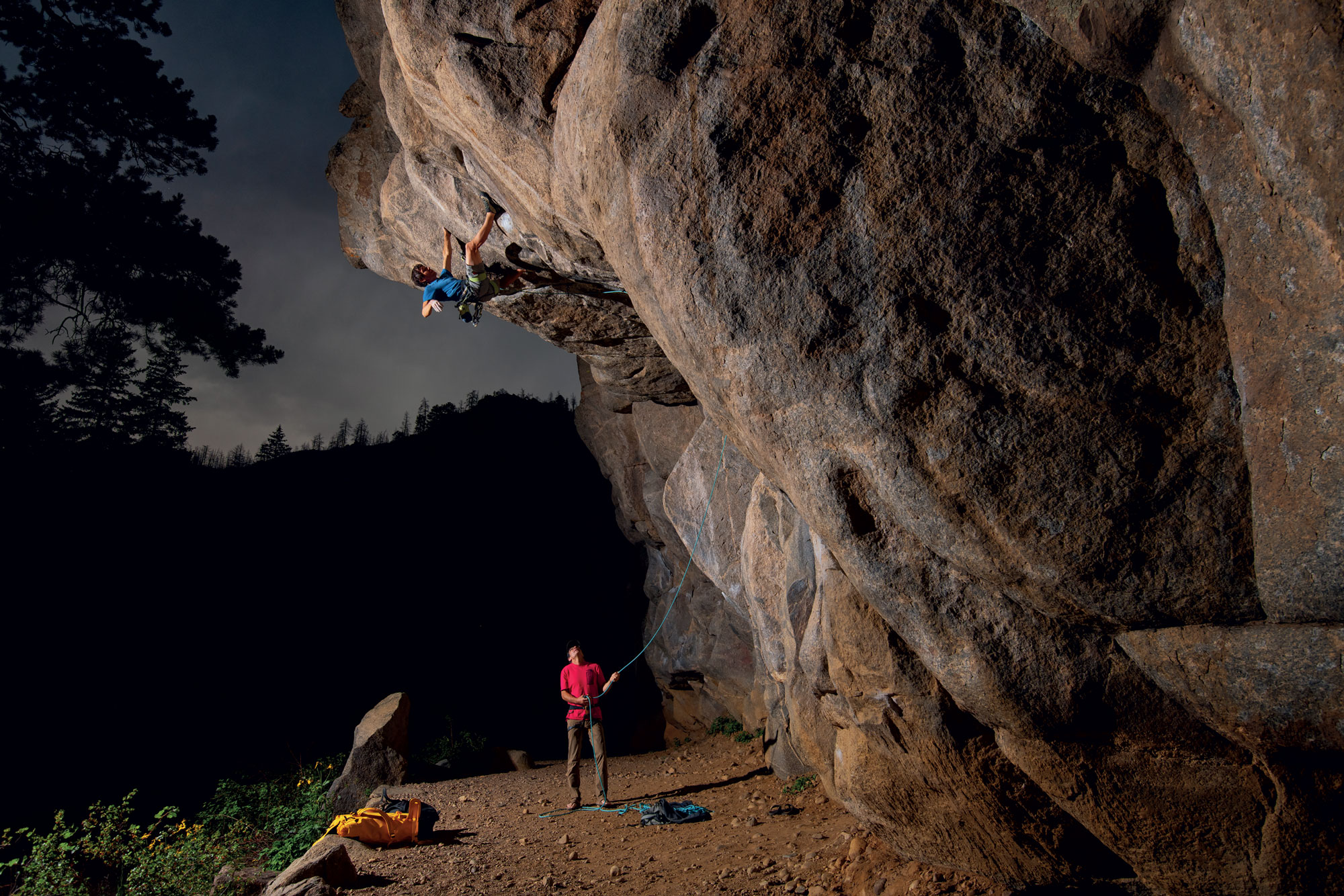
A beer with Alex Honnold
A beer can never be denied, especially to Alex Honnold. On a rainy Wednesday afternoon in July, at a cafe table, I met perhaps the best known climber in the world (even in the world of non-climbers), and we had a chat.
Hi Alex! First of all, what are you doing in Chamonix in one of the wettest summers in the history of the Alps?
It is actually not the best time to be here. Anyway I’m spending some time in Europe for a future project, but I cannot anticipate much. Basically I am doing some high altitude routes. Except that at the moment, at high altitudes, there is a lot of snow! It’s really crazy.
Do you like Chamonix?
Yes, I like it, I had been here another time, for a few days, but I hadn’t climbed anything serious. Last week we tried to climb a bit at high altitude, unfortunately we only had good weather on the first day, and on the first day at high altitude you shouldn’t exaggerate. You have to acclimatize. I felt like my heart was exploding due to the altitude! Anyway, I like Chamonix, we climbed several crags here in the valley, then there was the Climbing World Cup. And then there is so much history. And people are super motivated! Just the fact of seeing at least twenty paragliders in the air every day is truly incredible! Even when there’s bad weather! Do you all fly here?
That makes me smile, he has been able to solo climb El Capitan and other extreme difficult and long routes, without ropes, carabiners, friends, in short, everything that “normal” people use in climbing for avoid exposing themselves to the risk of falling from very high altitudes. He has extra-ordinary doses of motivation and energy, but now seems to me like a child who surprises of the more or less impressive challenges made by others. Alex Honnold is a 35 year old man who still get to be surprised. And he is also very curious. Not by chance, in fact, some time ago he has launched into the production of podcasts.
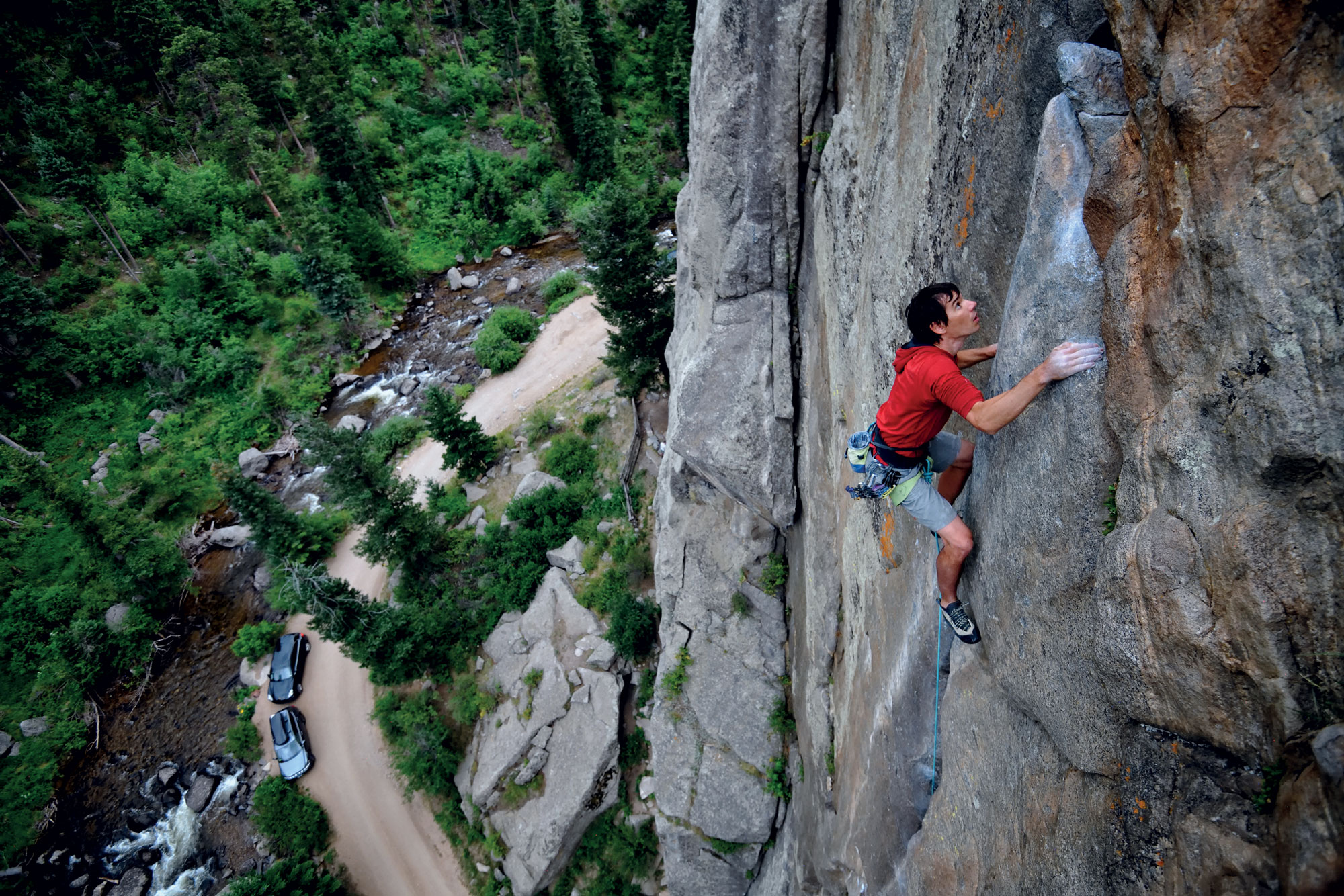
Tell me a little about your new business, let’s start with Climbing Gold. How did it start and what is it about?
Climbing Gold was an idea by co-host Fitz Cahall. Before Covid I was offered to be a commentator at the Olympics, but I had absolutely no experience in commenting on sporting events, much less on the Olympics. But since I’m a guy who often replies “Oh, of course why not!” to new proposals, well, I said yes. And then Fitz asked me to lead a climbing podcast and I thought it would be a perfect way to learn and explore the different issues related to climbing and the Olympics. The first season of the podcast talks about the history of climbing, and how the sport has evolved to the point of becoming an Olympic discipline. We are now working on the second season which is more dedicated to the world of competitions and the Olympics. In any case for me it is a great opportunity first of all to work with someone like Fitz, who is extremely good at what he does. Then to prepare, try to interview, comment, all the things I have to learn before the Olympics.
And how is it going?
Well, actually I don’t know almost anything about the Olympics yet, but I know a lot more about climbing, so I would say the result is positive, it was an opportunity to talk to many exceptional climbers and to hear and tell fantastic stories. .
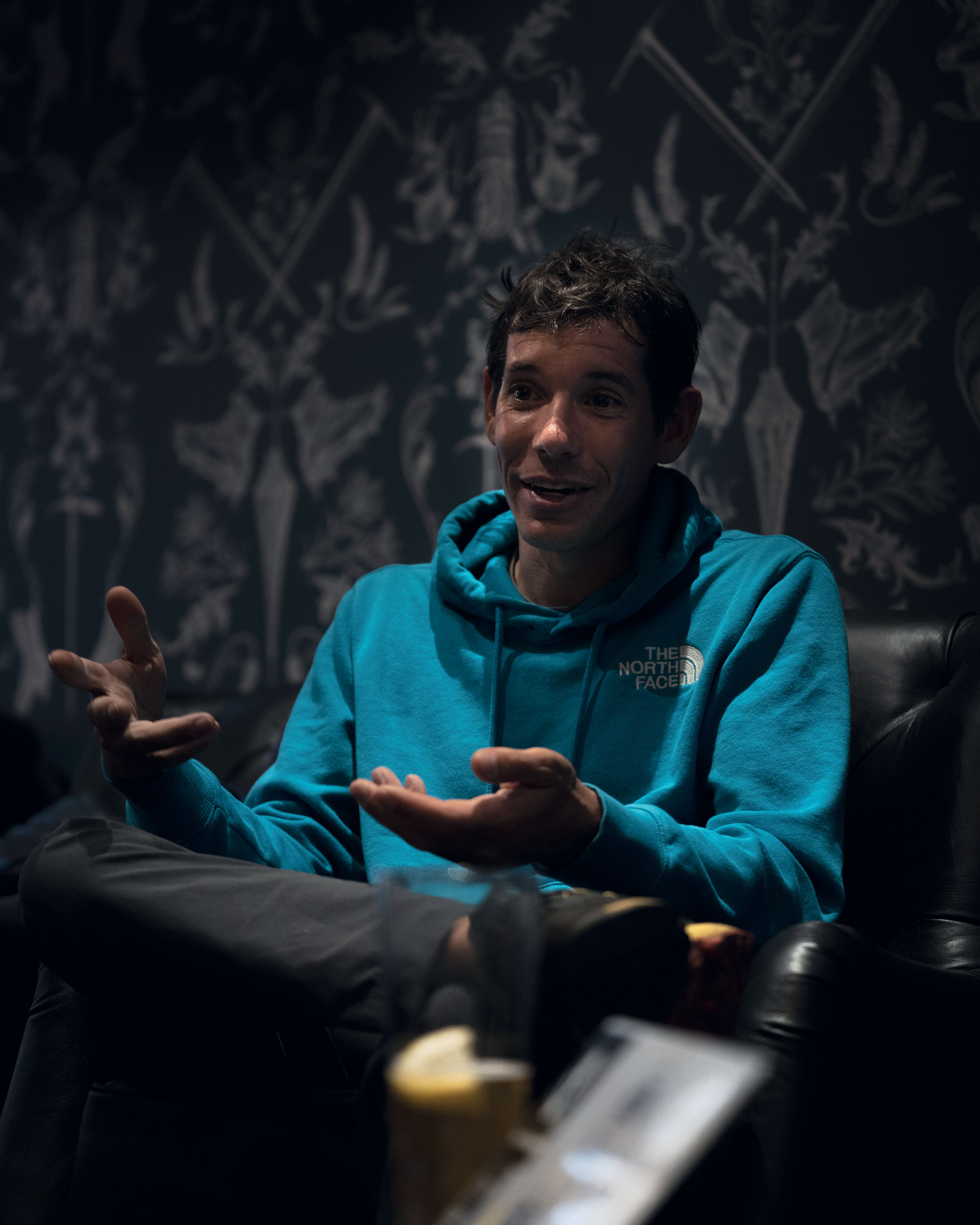
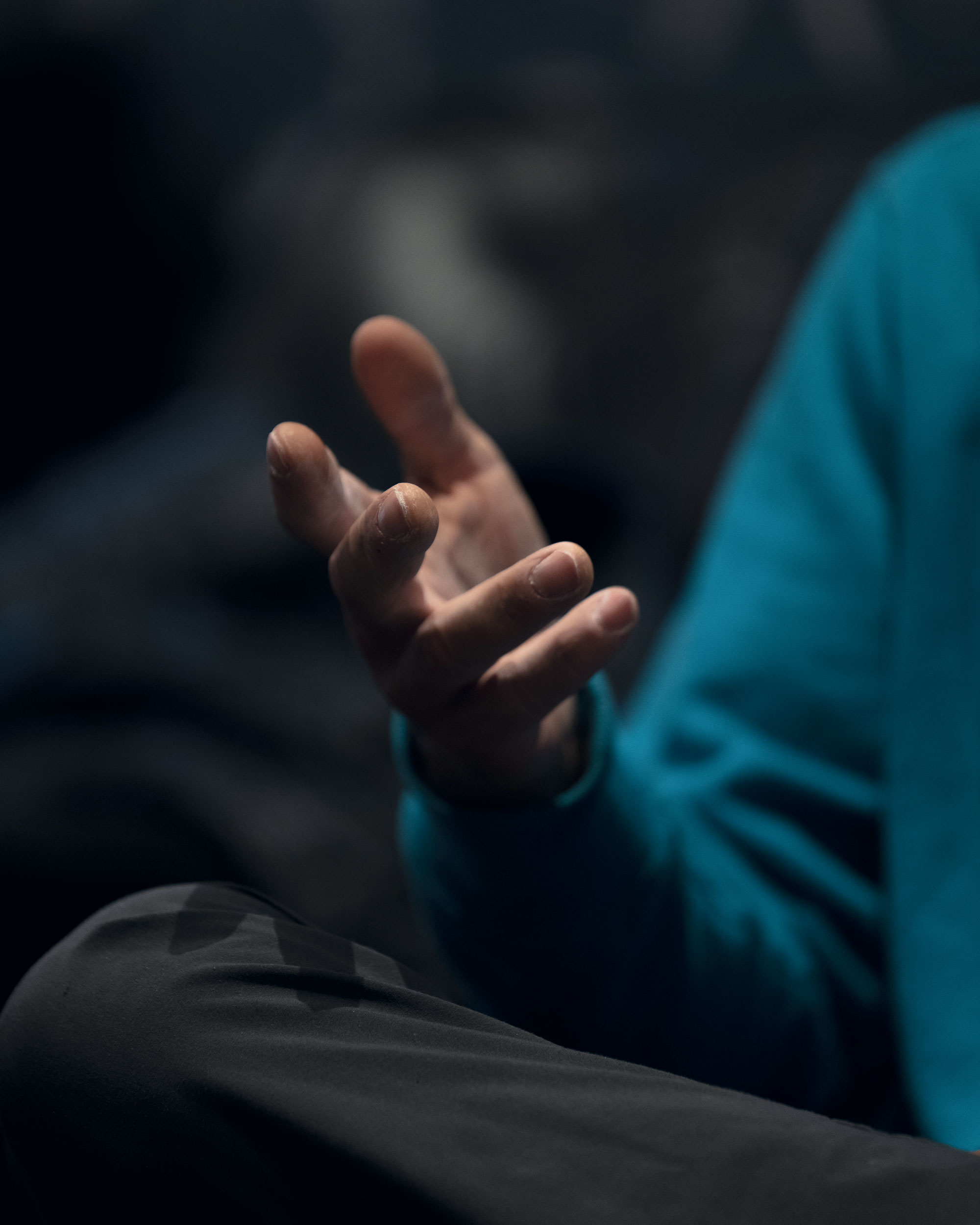
Do you feel comfortable telling other people’s stories?
Honestly, it’s super fun to voice others’ great climbing stories. I’ve spent so much time taking part in movies and being photographed. Everything was always focused on me, and it’s nice to talk about other people by telling their stories. Many can’t even make it back into the podcast, because one episode only lasts 40 minutes. I enjoy hearing various anecdotes and it is quite inspiring from a personal point of view as well. One thing I didn’t expect is that so many of my friends are listening to it and I am receiving very positive feedback, it seems that we have really contributed to giving something to climbing. It’s nice to share these stories, to preserve them. It’s a bit like writing a book or making a movie: when you’re done, you feel like you’ve created something that will stay forever. I like to think that I have given something to the world of climbing.
What do you like about “making podcasts?”
I’ve always been very curious. I like to discover other people’s interesting ideas, it allows me to see the world in a slightly different way. I’m curious yes, and I think one of the pleasures of being a professional climber is getting in touch with interesting people and stories. I didn’t go to university, I don’t have a technical background, so I try to draw from everyone to the fullest!
What story did you like the most?
I think my favorite episode is the second one in which we talked to Joanne Urioste, a lady who lives, like me, in Las Vegas. She and her husband in the seventies opened most of the famous routes in Red Rock, where I mostly climb. Now their routes are climbed at least ten times every weekend and are covered in chalk. The rock is perfect, it’s like a gym. Hearing her story about when they opened those routes in the middle of nowhere was fantastic!
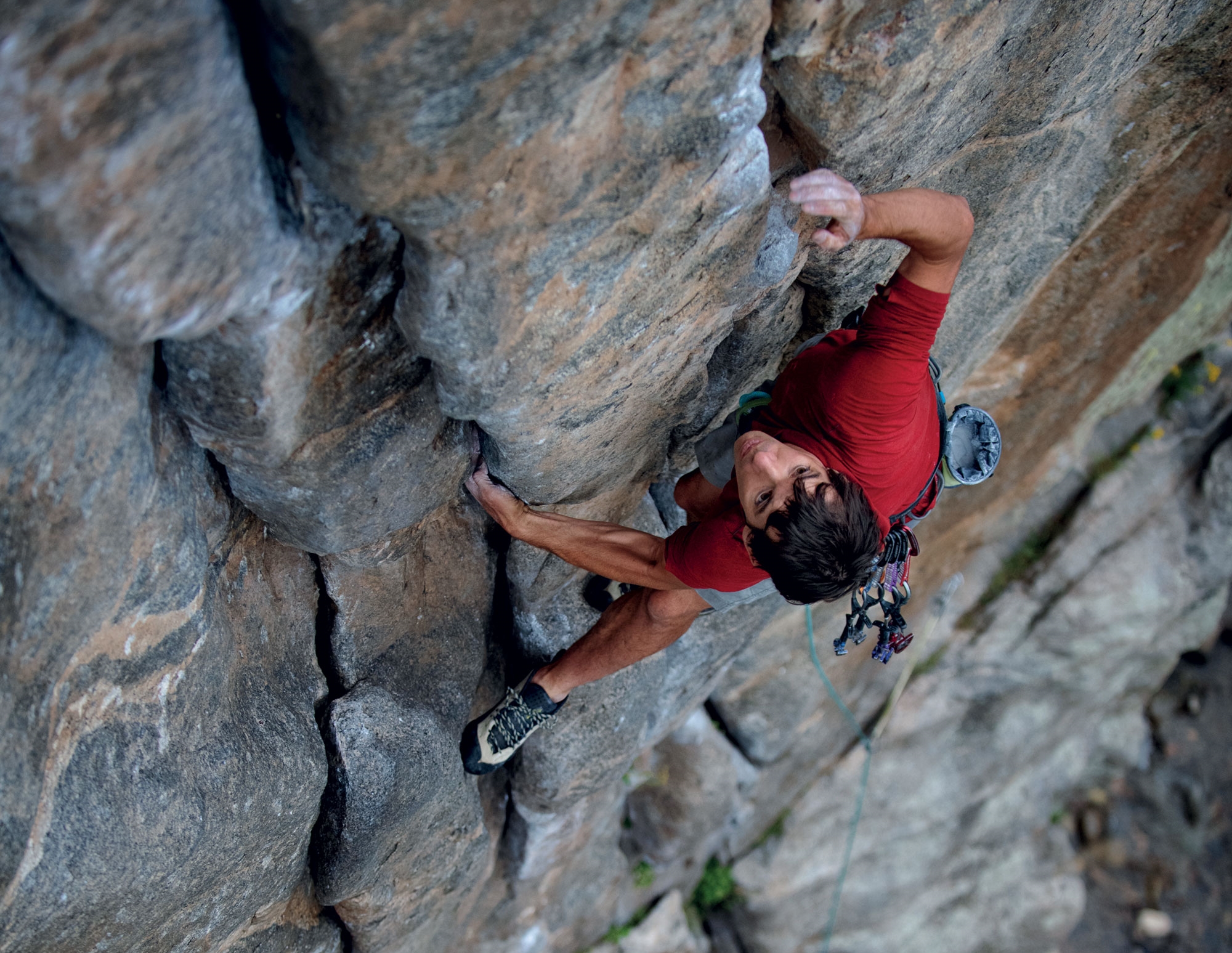
What do you think of climbing at the Olympics?
Climbing has now become a mainstream sport, you know. My personal opinion is that this popularity, thanks or not to the Olympics, will only increase the level of both indoor and outdoor climbing. I see it as a good thing in general, because it brings more talent into the sport, more energy. Historically, climbing has always meant adventure. Indoor climbing is undoubtedly closer to performance. As your athletic level increases, your adventure potential also increases. It is an interesting aspect: we interviewed people who think that becoming part of the Olympics is bad for climbing, that it will compromise its soul. I don’t know. We came to the idea that climbing should simply be divided into two disciplines, such as ski mountaineering and freeriding. Sport climbing and adventure climbing, let’s say! Imagine if someone could climb El Cap at the same speed as a speed climber!
The evolution of equipment also helps.
Sure. I have been collaborating with The North Face for over ten years now. It is not that much time compared to the history of climbing but as regards the equipment I must say that I am more and more impressed by how all the products are always lighter, smaller and more performing. This crazy progression of materials is brilliant and undoubtedly helps to live adventures more and more easily, in order to worry only about enjoying the experience to the fullest.
Do you hang up with young climbers?
In Las Vegas I often climb with two guys who are about 17 years old, they are always very motivated and energetic. A couple of years ago I was still the youngest in the grousp, not anymore! That said, I feel really old! But yeah, in a way I’m just naturally embracing this role, because now I’m climbing often with people who are less experienced than me, and I’m happy to teach, share, contribute to their growth. I think it’s a natural process: as time goes by you care a little less about pushing hard. I am happy to live in a more relaxed way.
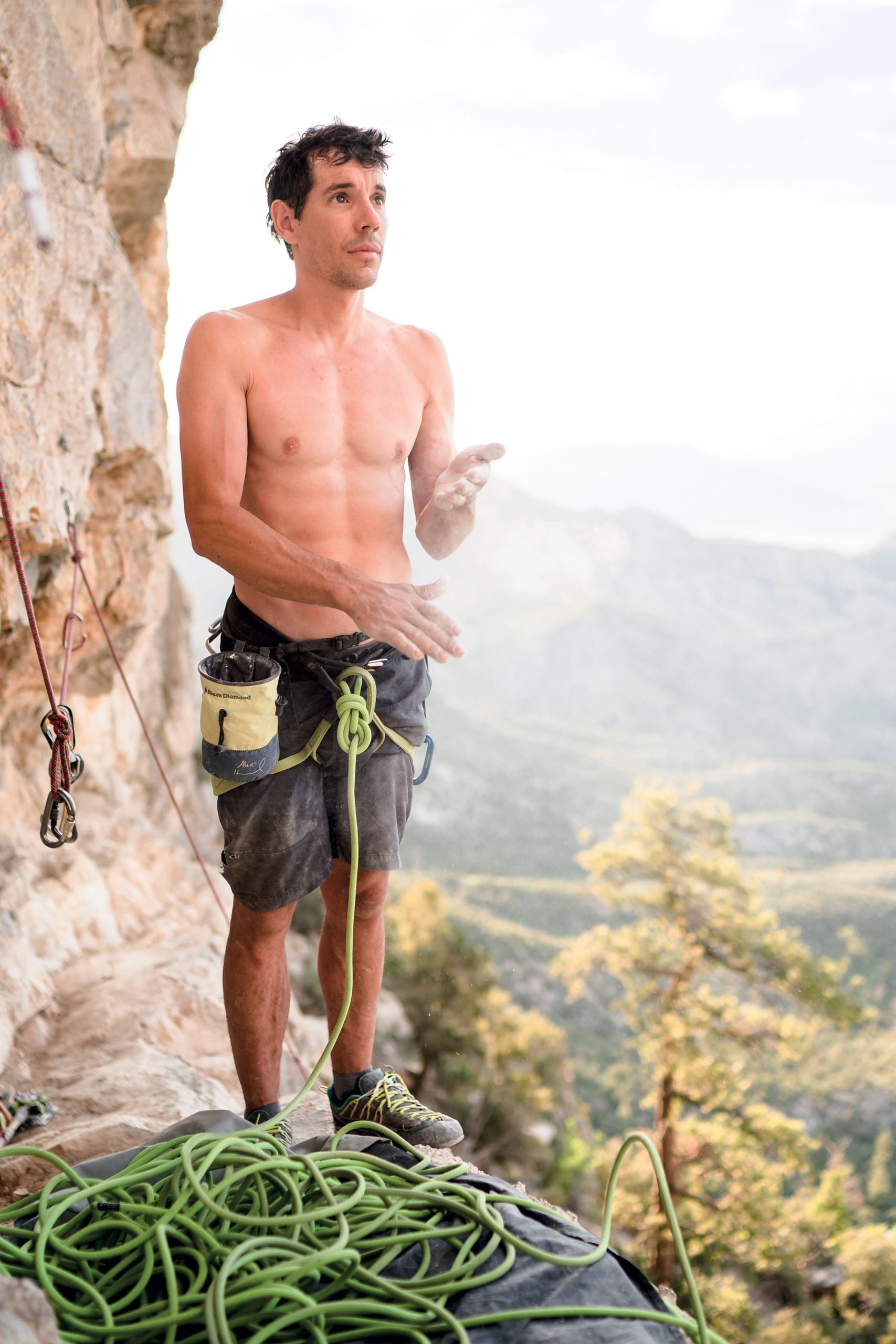
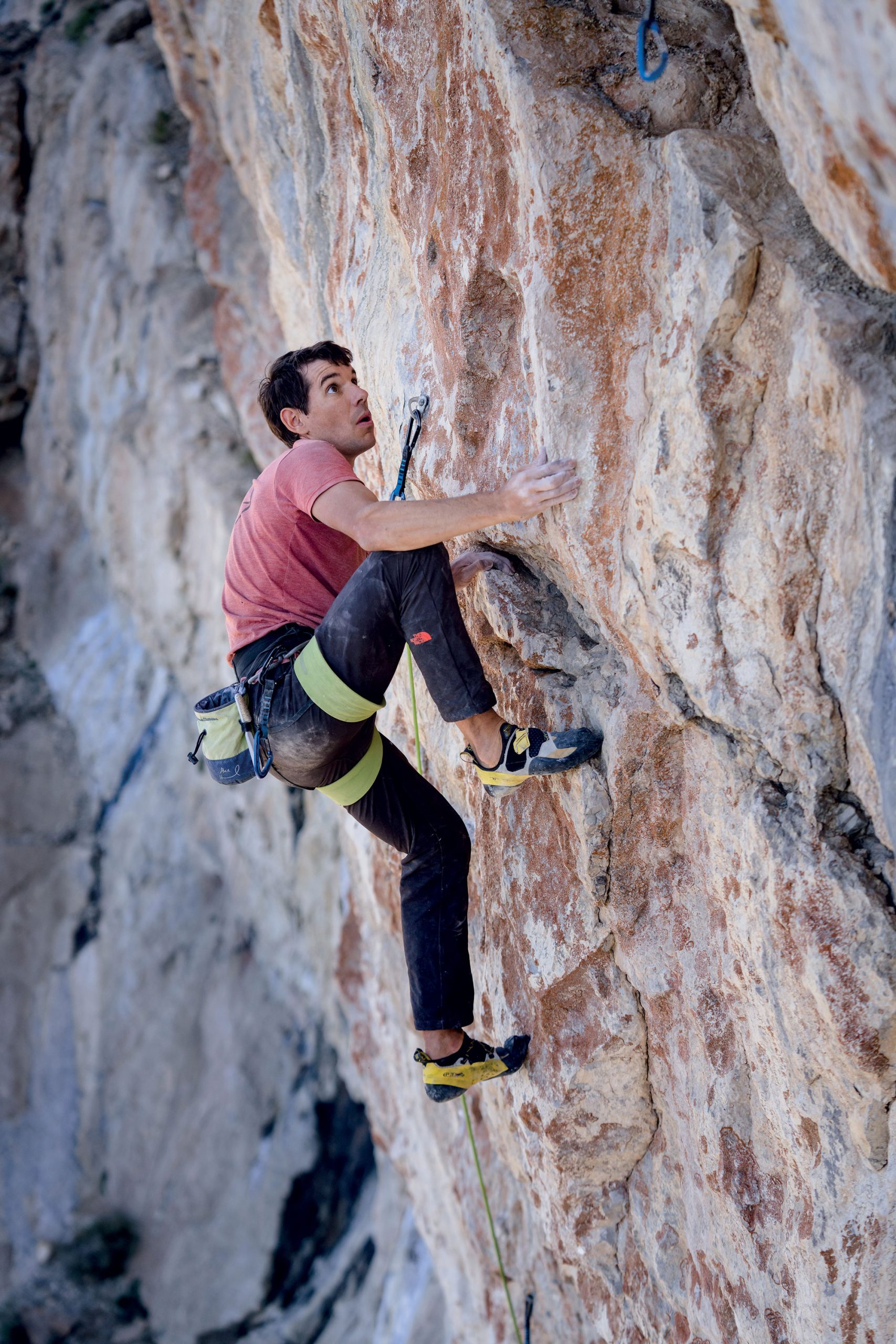
Have you made peace with your need to experience exceptional adventures?
I think that in order to do certain things, achieve certain goals, you have to dedicate yourself completely to them. Mind, body, spirit, heart. But you don’t always need these experiences and feelings in every moment of your life. There are people who, because of the conditions of the mountain, or of life, do not get what they want, and therefore remain hungry forever, never satisfied. I am extremely grateful that I have achieved many of the goals I wanted to do, I am a little more satisfied now. You know, I’m still super motivated, but also a little more relaxed, I think. And that’s the beauty of it.
We went on chatting about many things, but a long conversation between people who talk a lot is not easy to write down in an appreciable way. What we can tell you is that Alex Honnold hosts a super interesting podcast, Planet Visionaries, which highlights the stories of pioneers in the world of sustainability. Still on the subject of sustainability, in 2012 he founded the Honnold Foundation which supports sustainable energy development projects around the world. We can also tell you that he will never come to live in the Alps because “the roads are small and winding, sheep suddenly cross the road and the phone does not work sometimes!” and even in the most urban areas everything is too complicated, compared to Las Vegas, to go climbing: “have you ever thought about making straight roads?”
